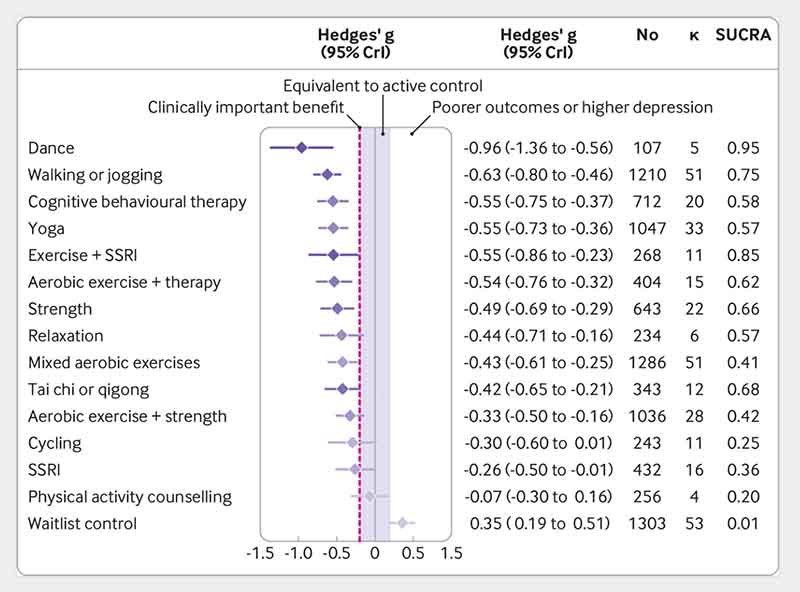A meta-analysis of over 200 studies has compared the effects of exercise on depression, and found that dancing produced the best outcomes.
The study, published in the British Medical Journal, analysed the results of 218 unique studies to identify which kind of exercise best treats major depressive disorder, either alongside or instead of prescription antidepressants, psychotherapy, and other treatments.
The studies included 14,170 total participants, and researchers found that all exercise led to moderate improvements in depression symptoms. Results showed that walking, running, strength training, yoga and mixed aerobics produced results that were as effective as cognitive behaviour therapy, or CBT, a common treatment for depression. Dancing beat all other forms of exercise, consistently improving the symptoms of depression, however the study does note that the sample size for this type of exercise was smaller. “Based on our findings, dance appears to be a promising treatment for depression, with large effects found compared with other interventions in our review. But the small number of studies, low number of participants, and biases in the study designs prohibits us from recommending dance more strongly.”

In the UK depression is one of the most common mental health conditions, affecting around 1 in 6 adults. Research suggests that women are twice as likely to experience depression than men. While exercise can help alleviate some of the symptoms, the study was designed to promote additional treatments alongside SSRIs and CBT. “Our findings support the inclusion of exercise as part of clinical practice guidelines for depression, particularly vigorous intensity exercise. Doing so may help bridge the gap in treatment coverage by increasing the range of first line options for patients and health systems,” authors concluded. “Globally there has been an attempt to reduce stigma associated with seeking treatment for depression. Exercise may support this effort by providing patients with treatment options that carry less stigma.”
This story first appeared on leafie, view here
Author: Liam O’Dowd

